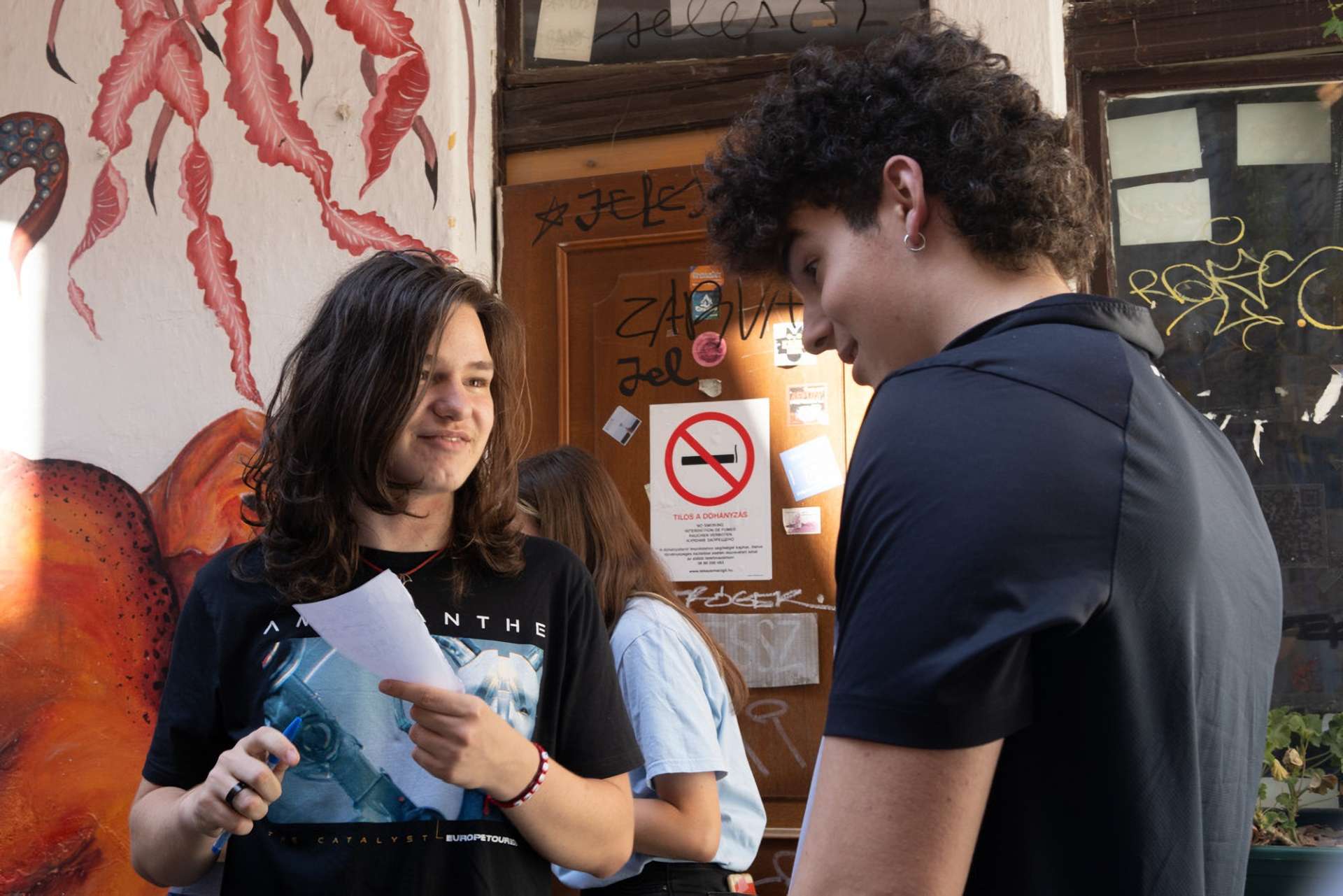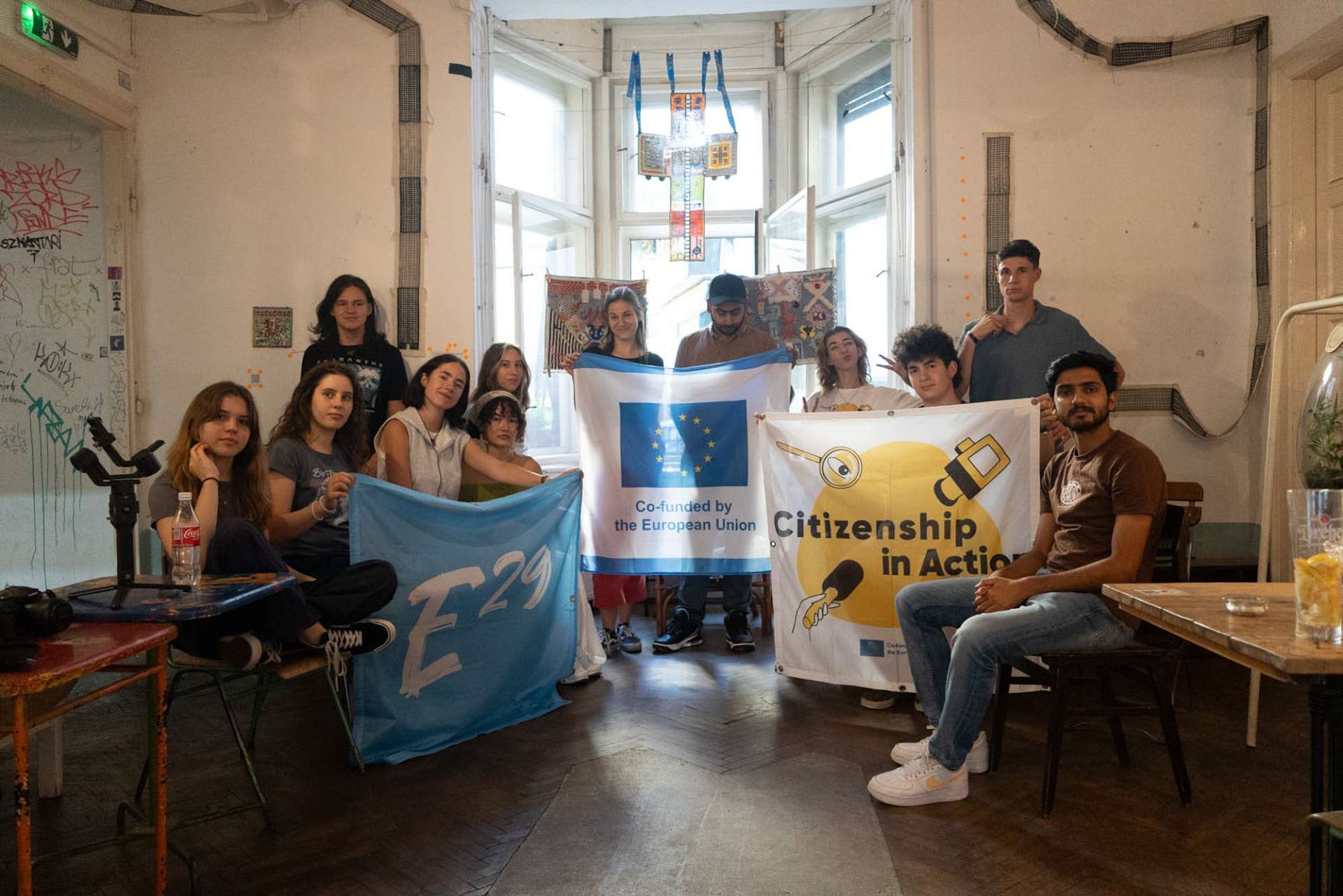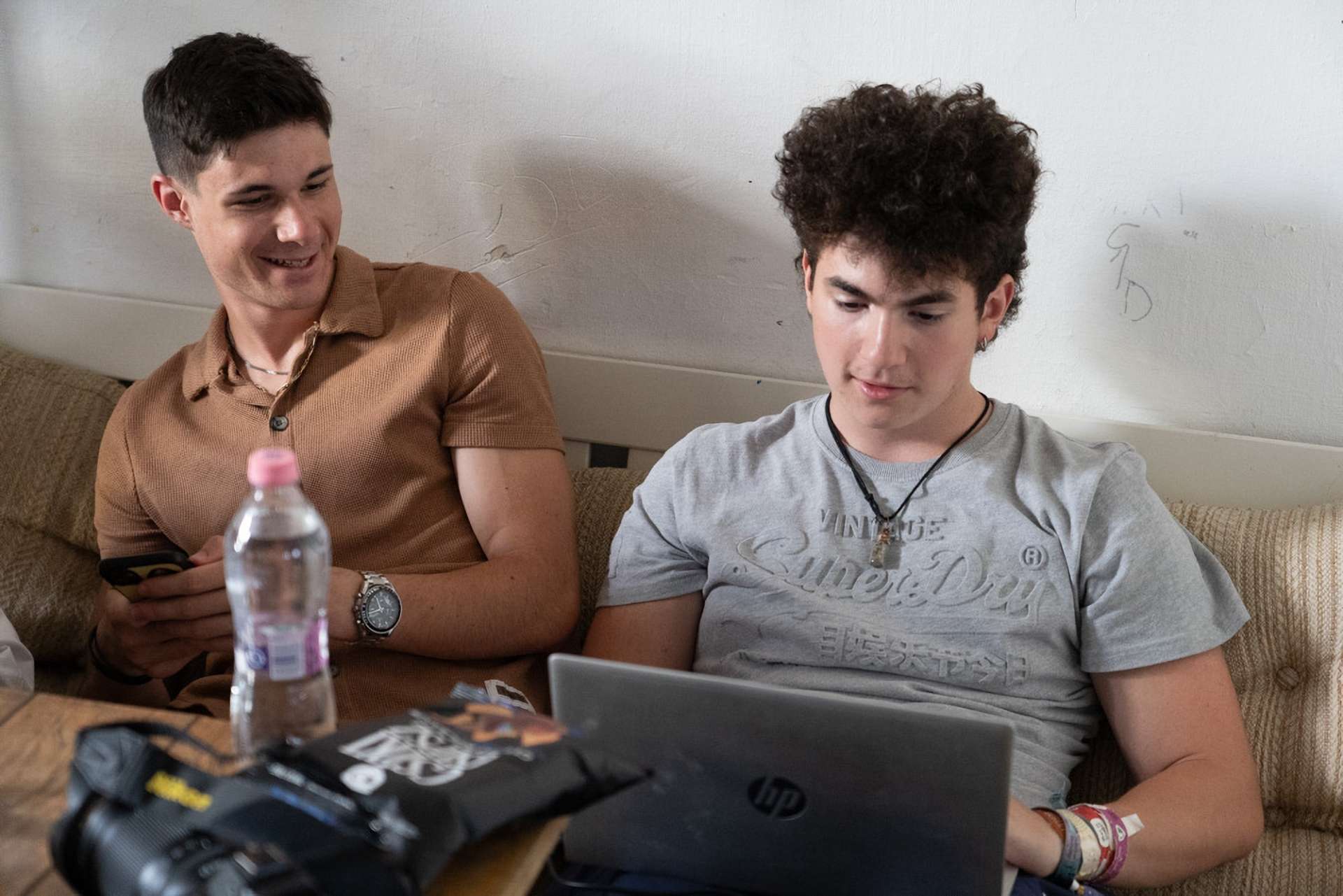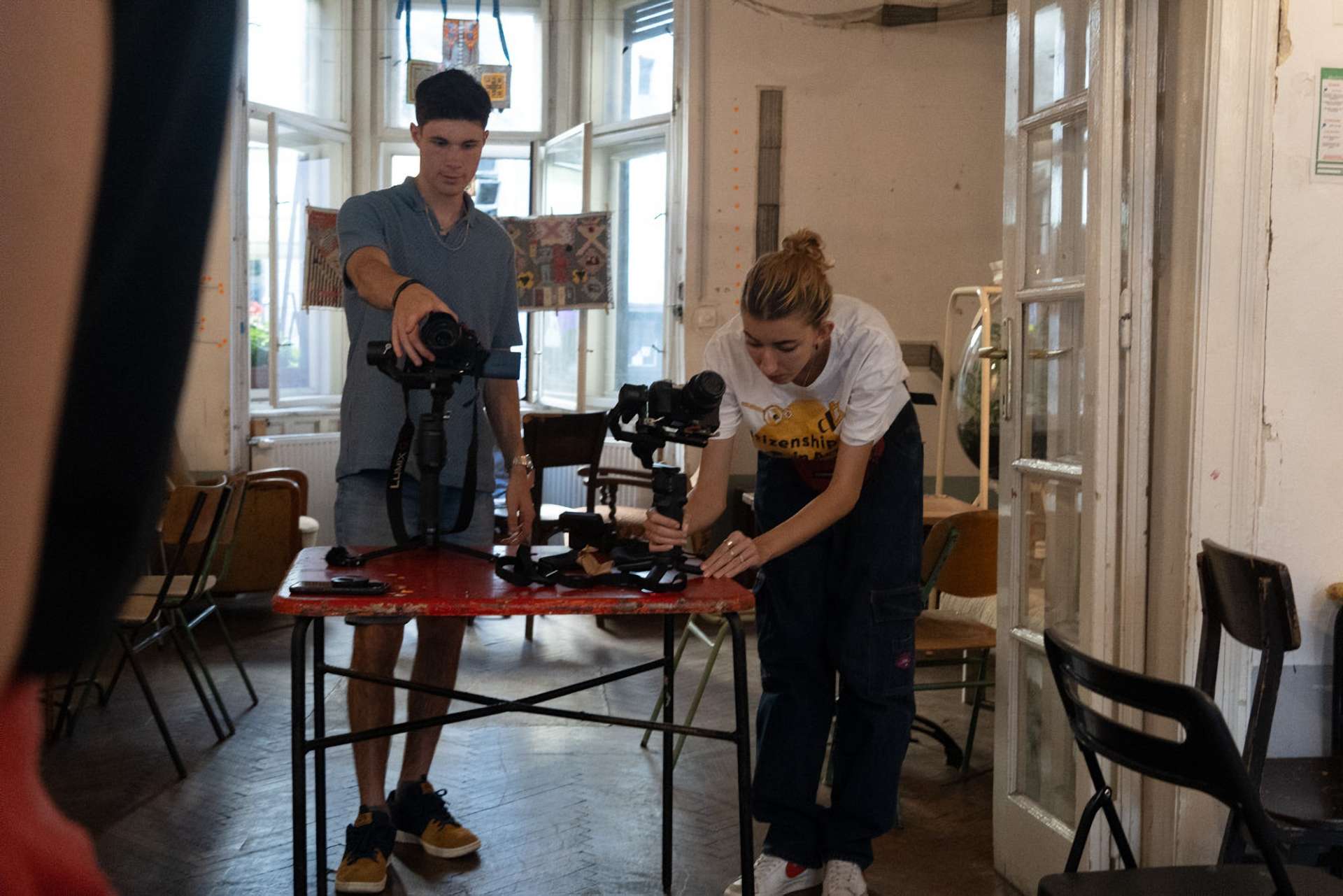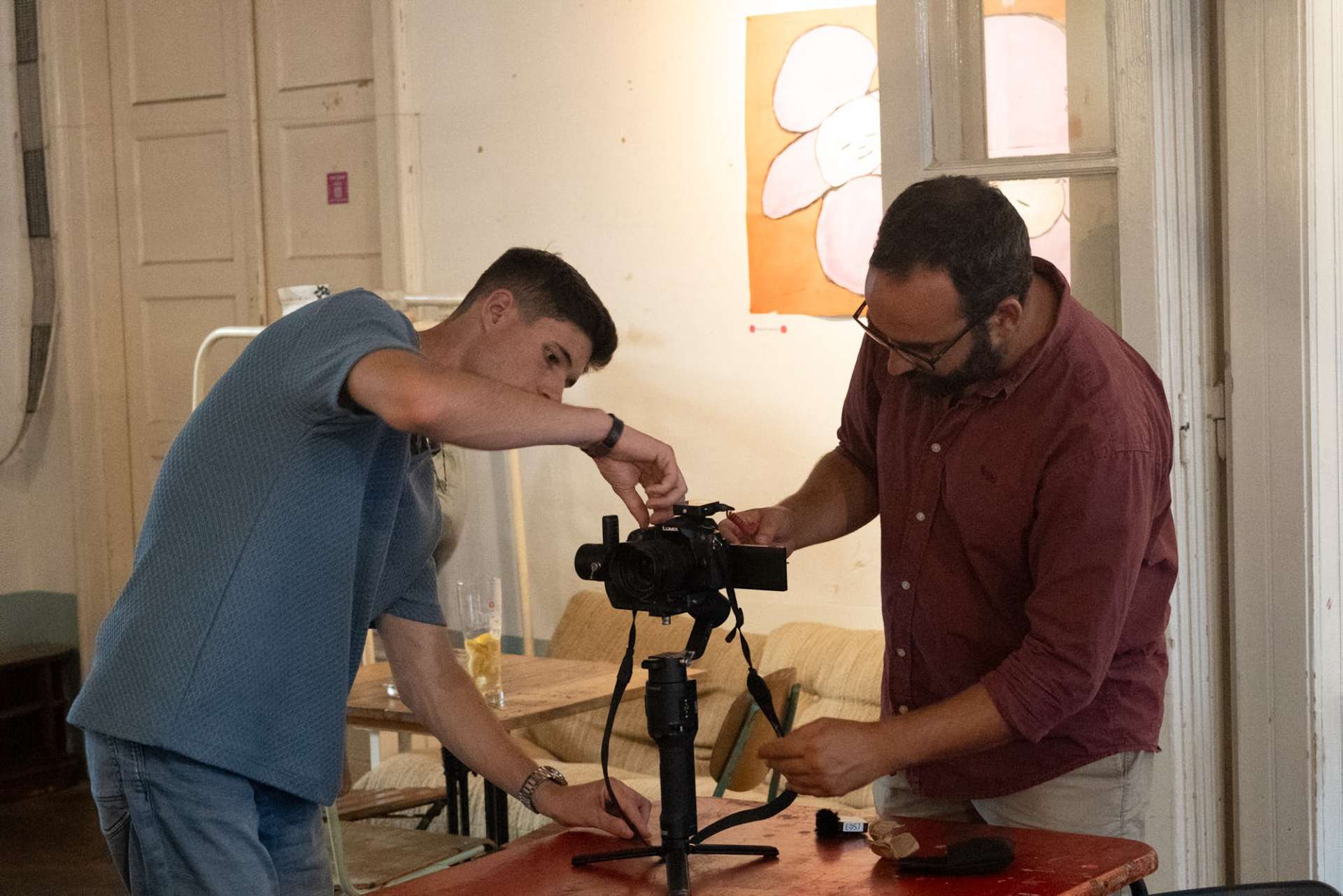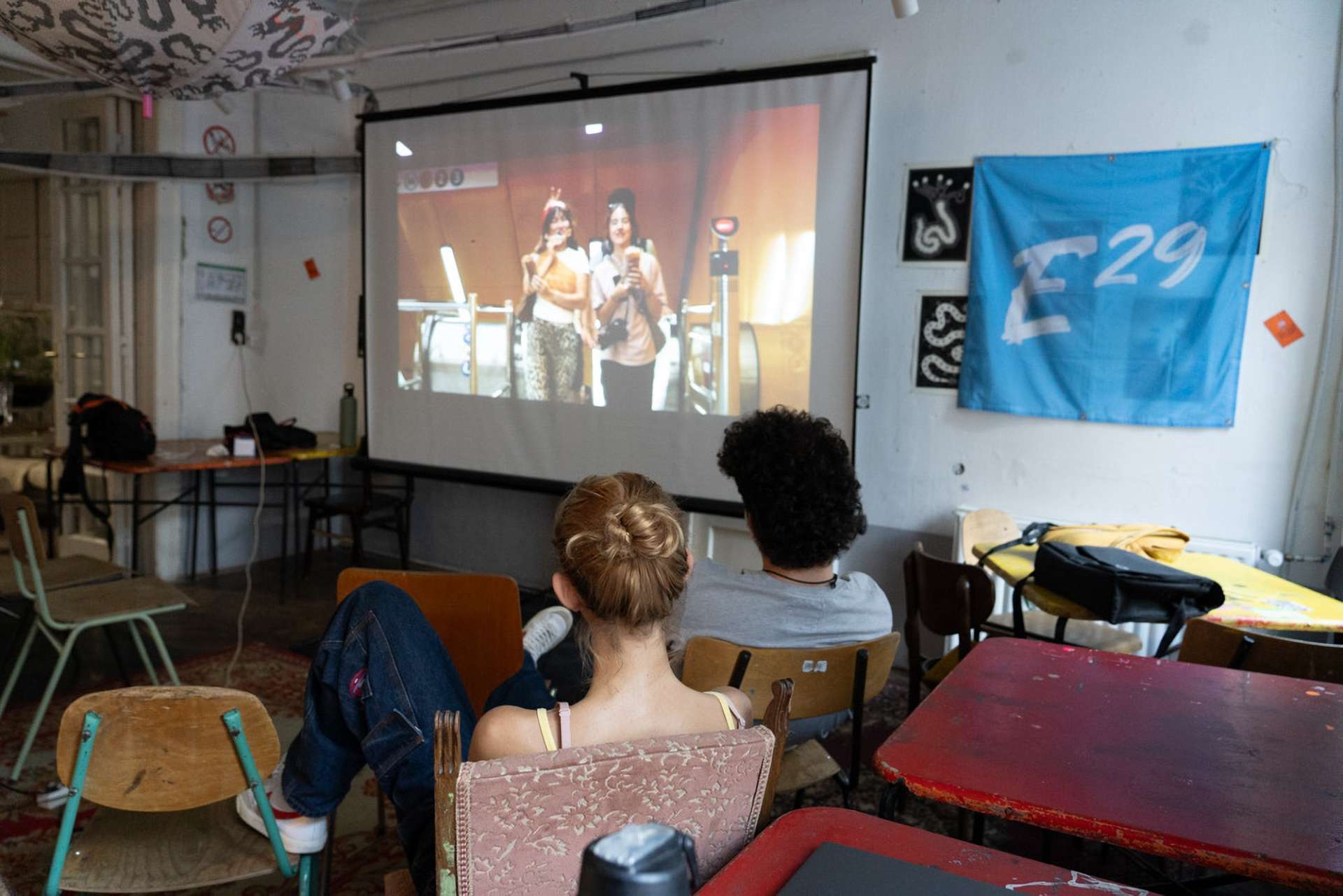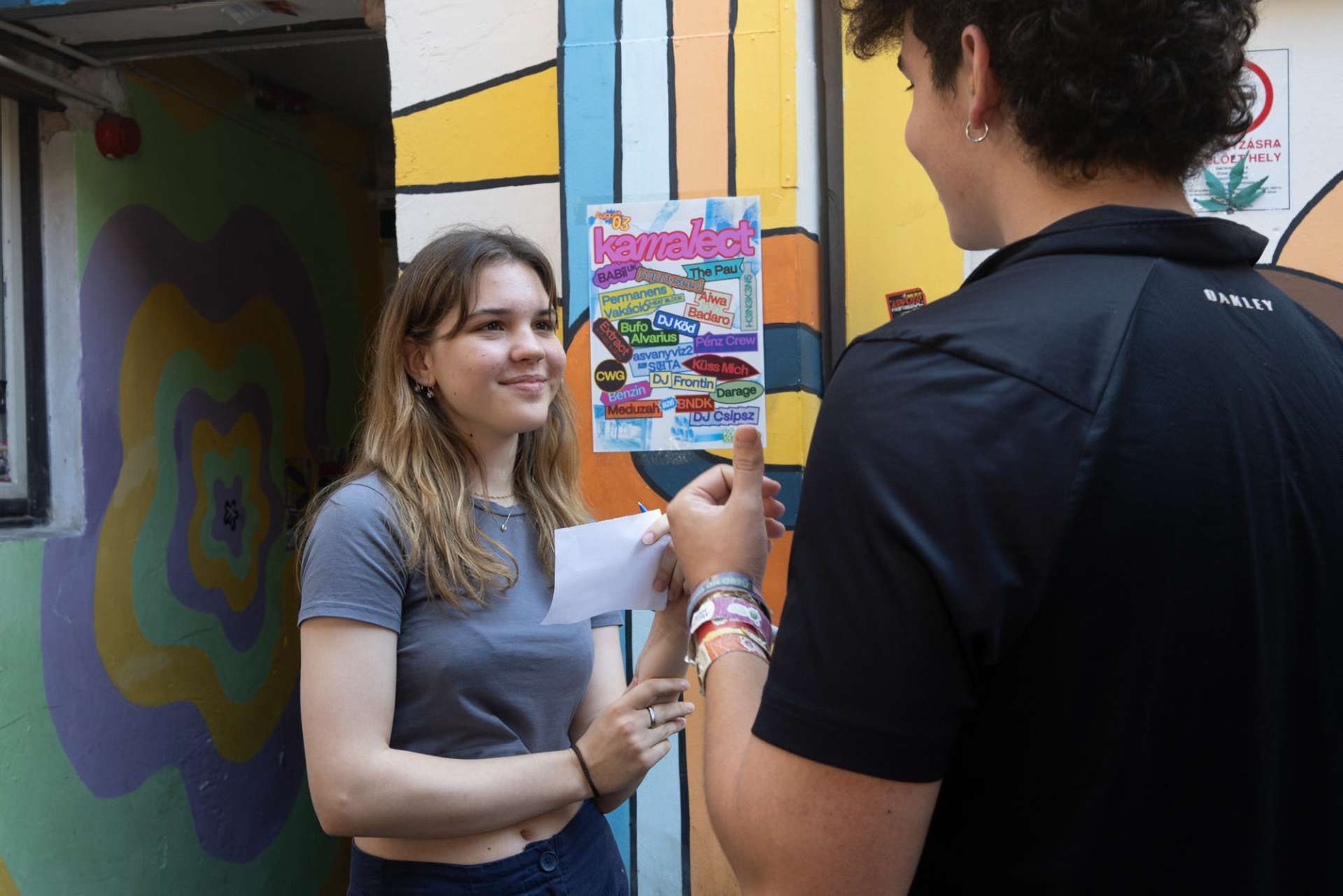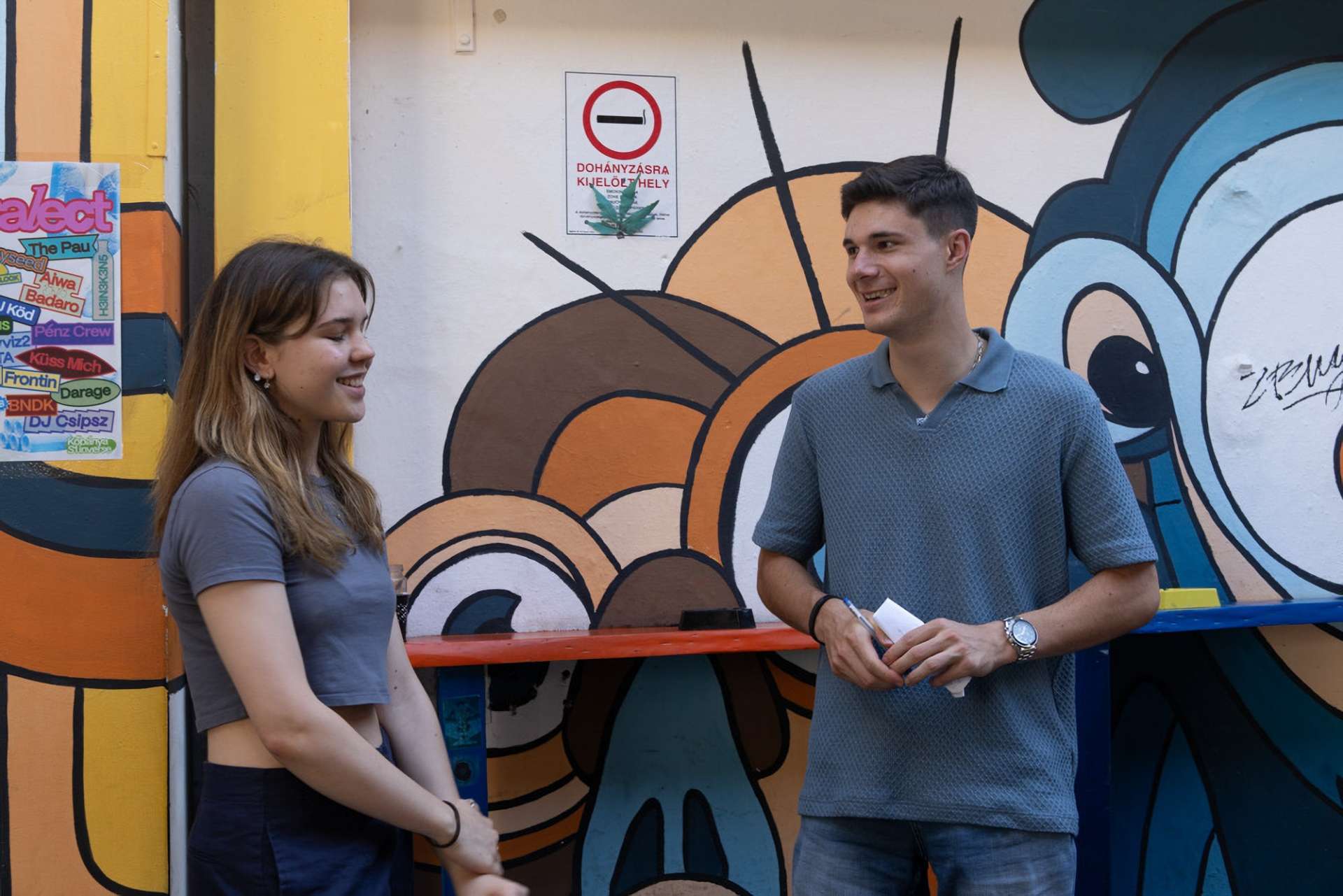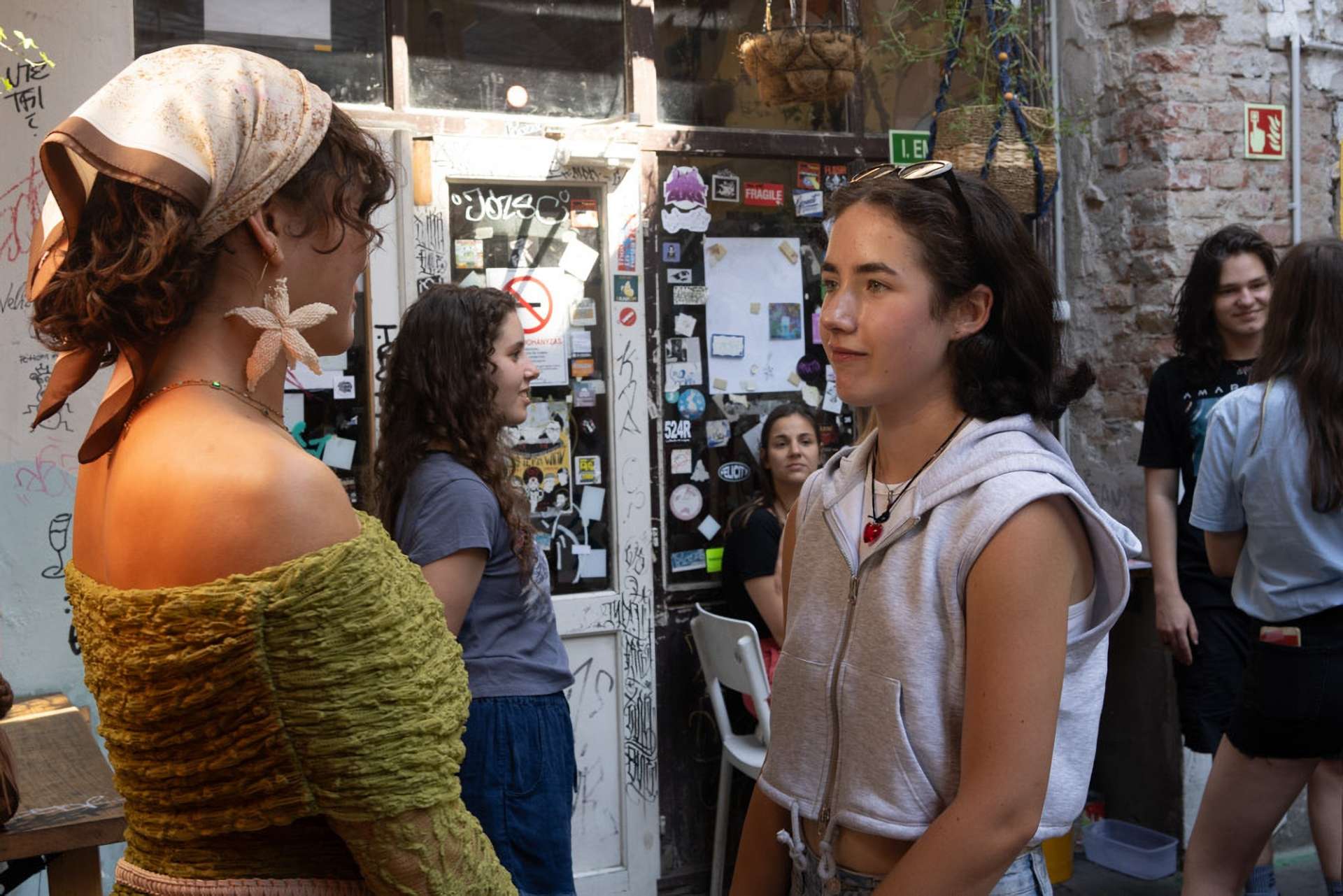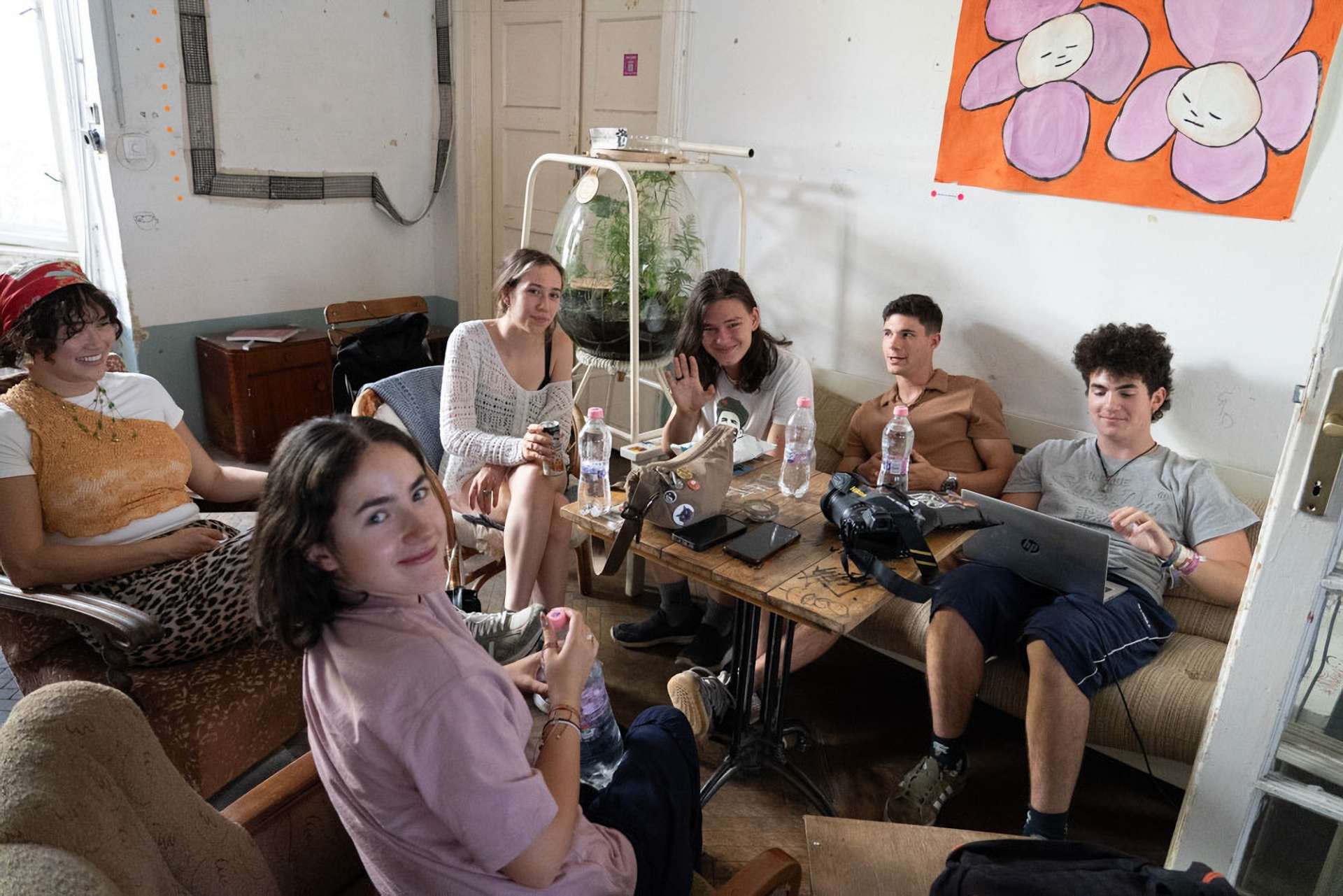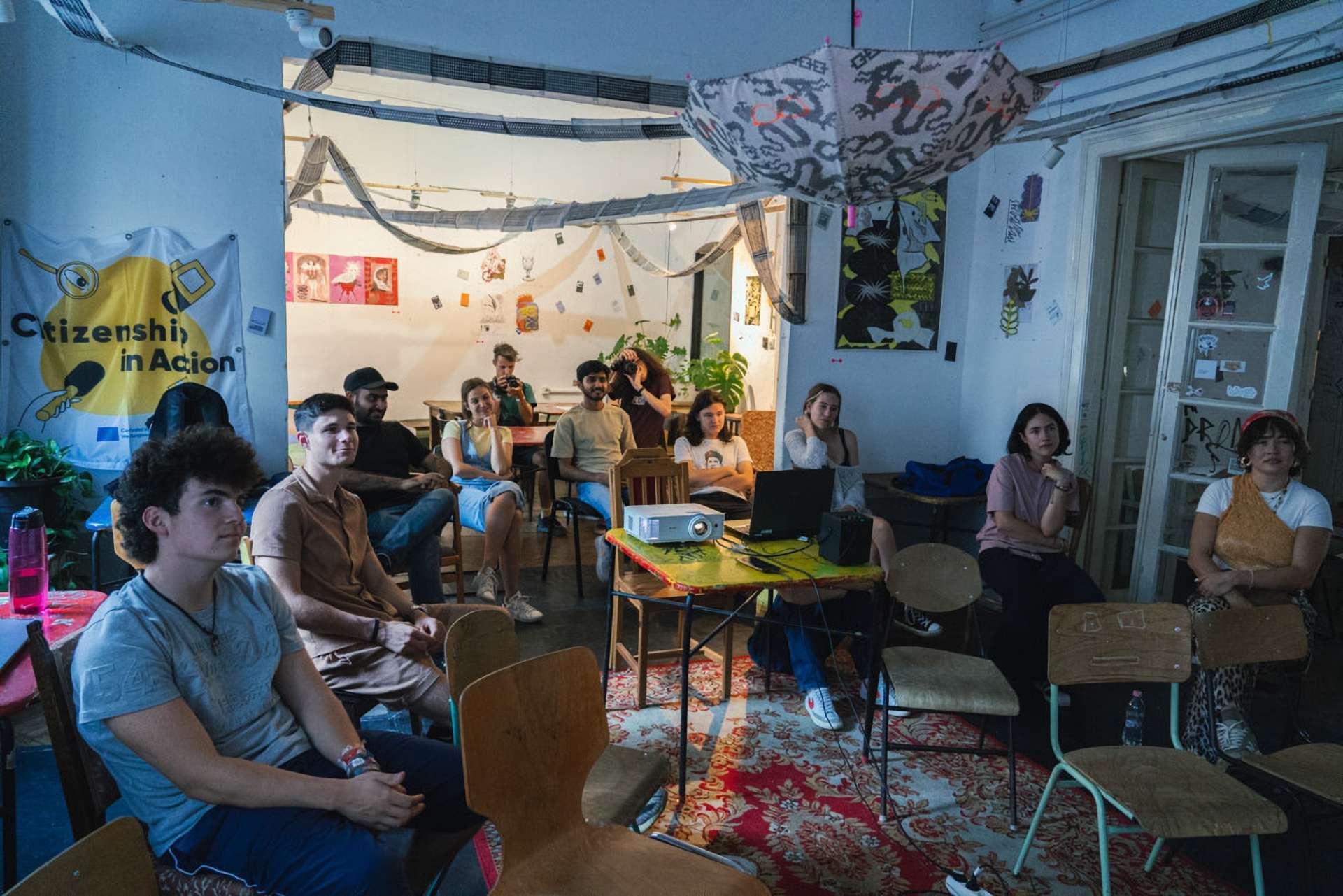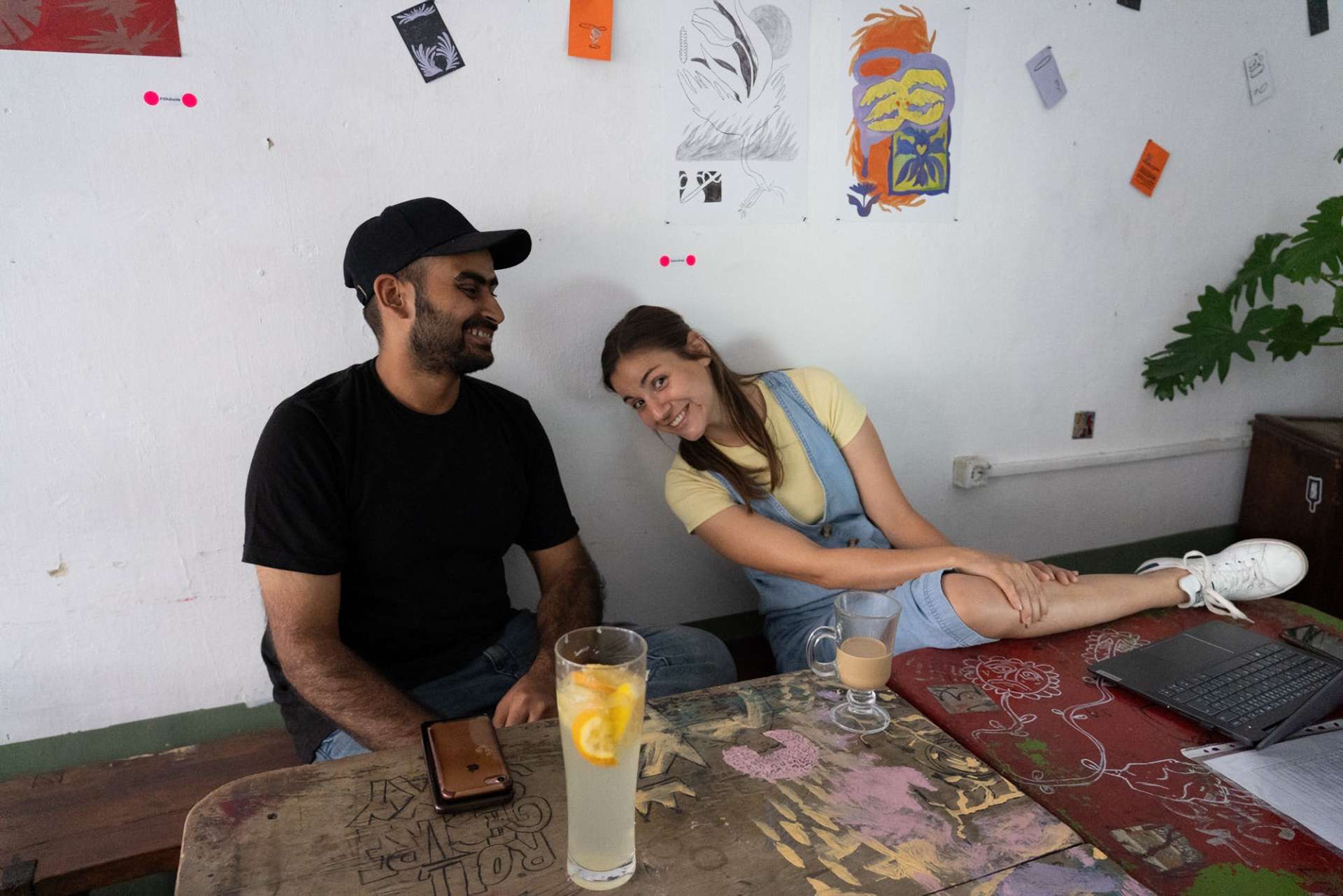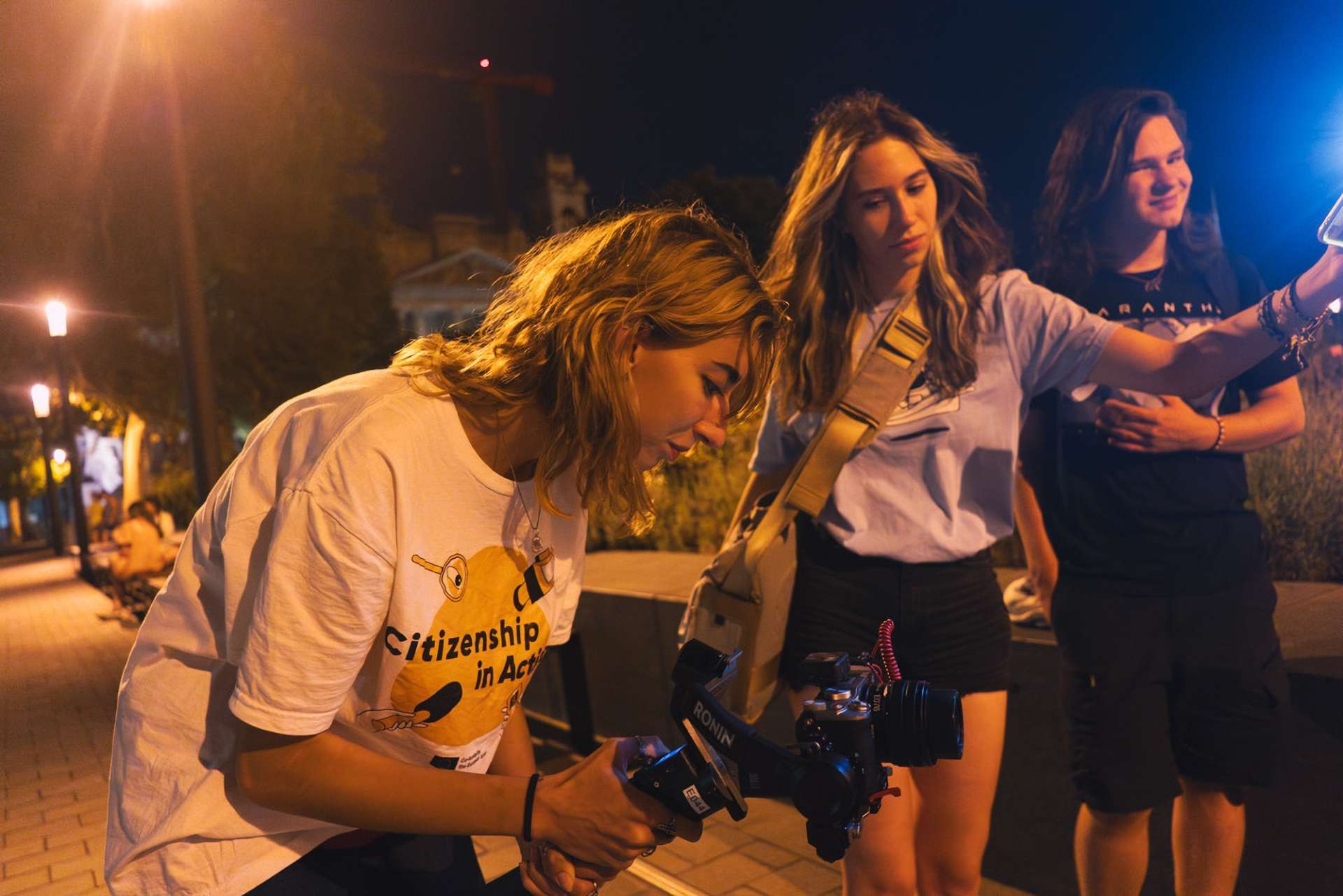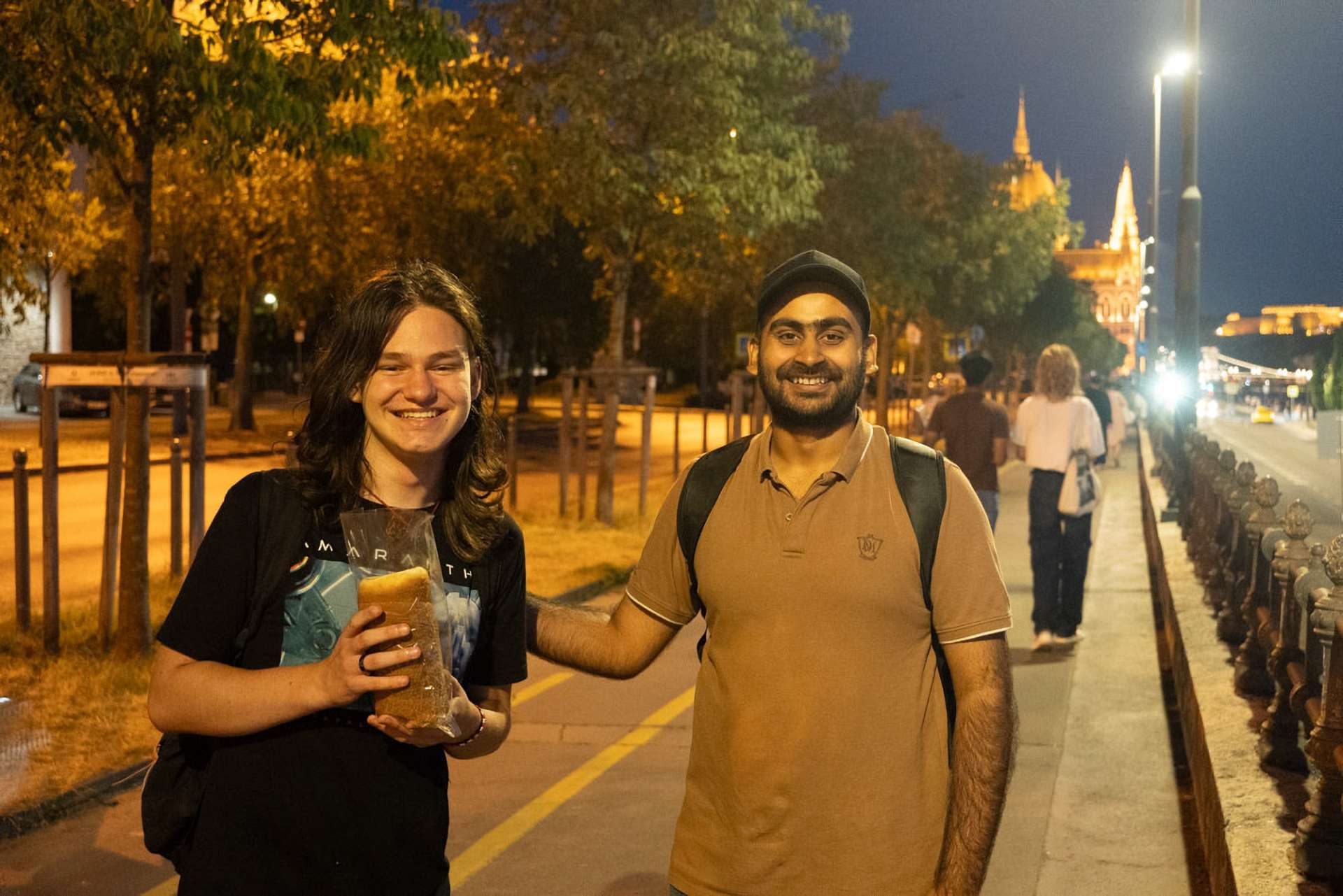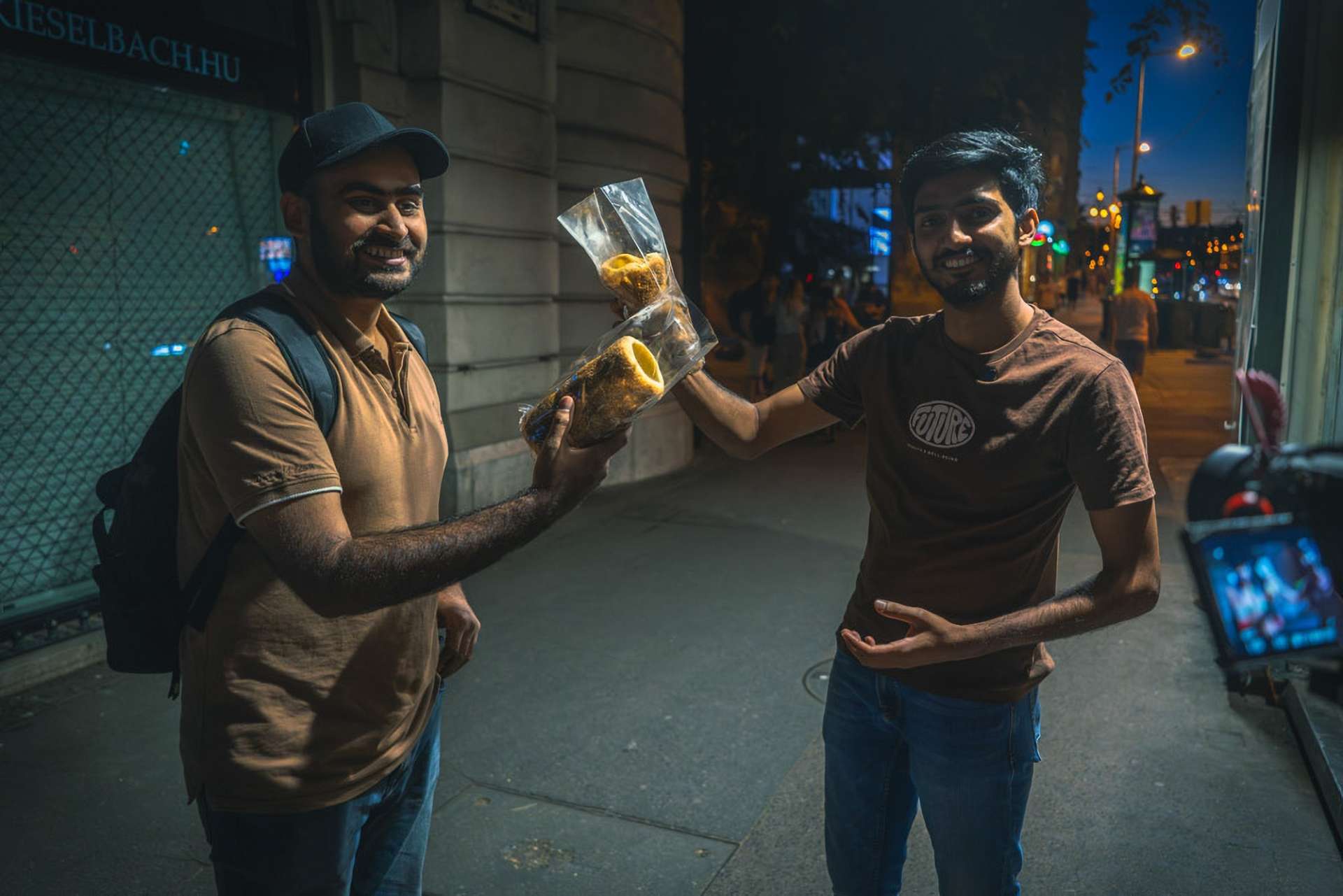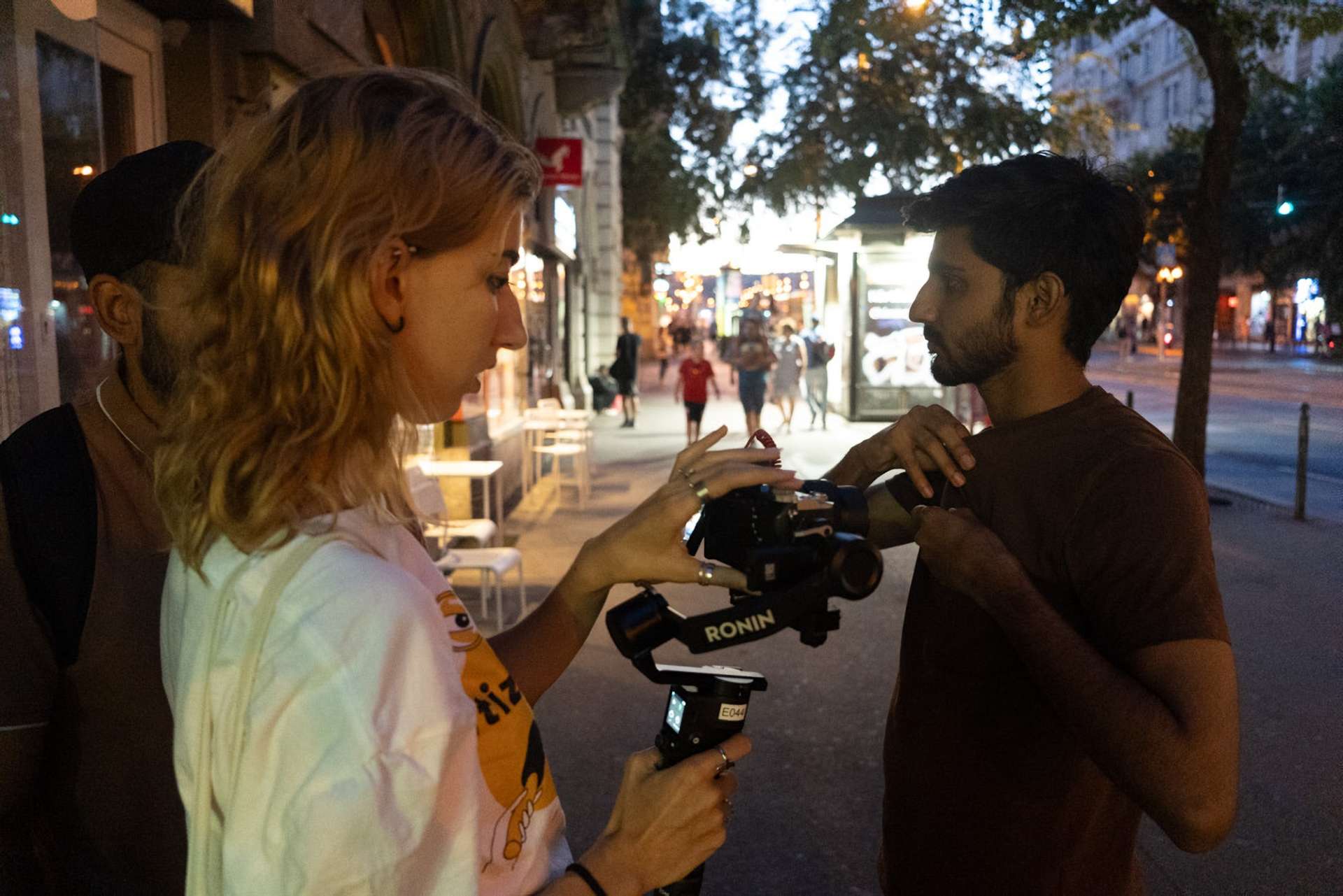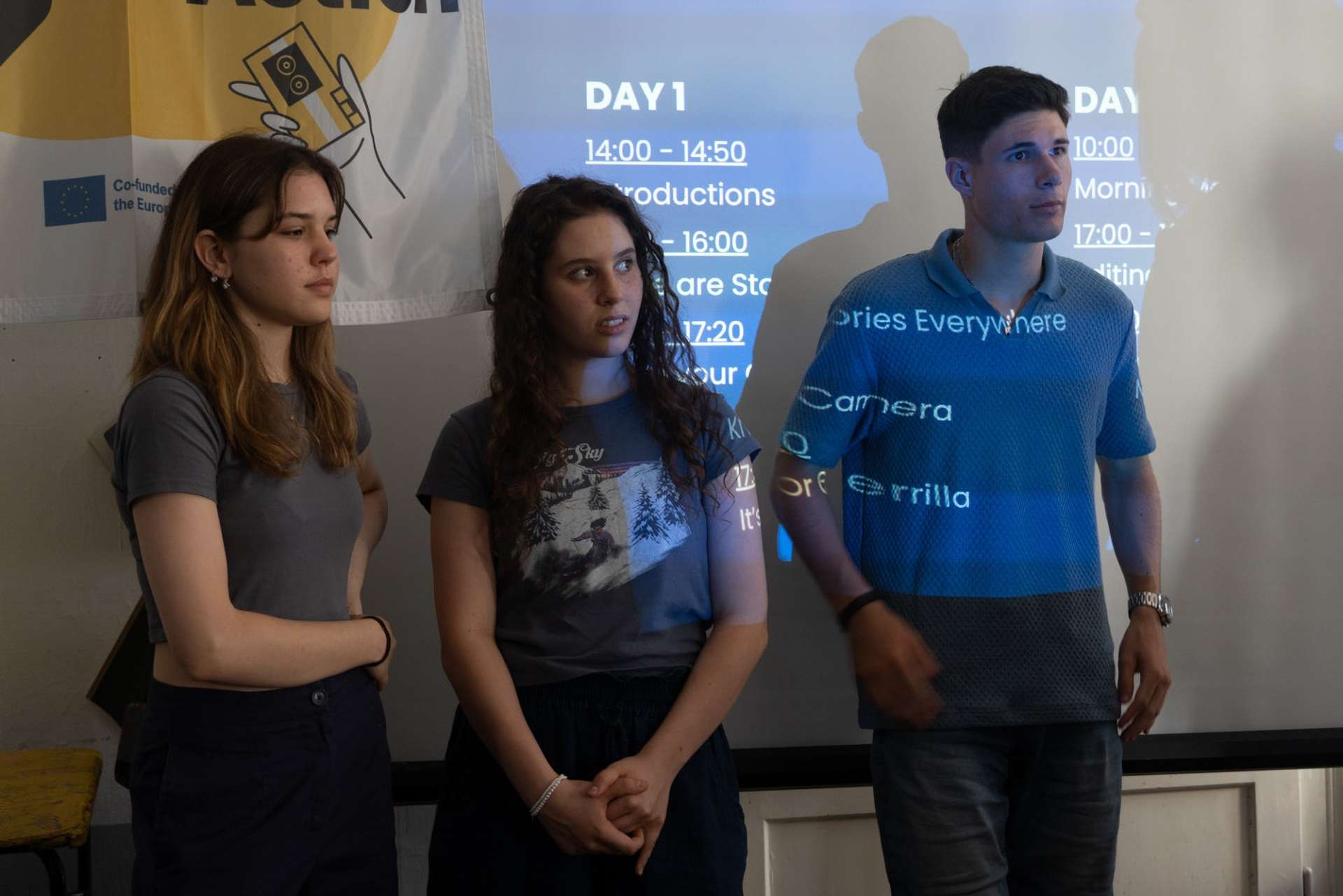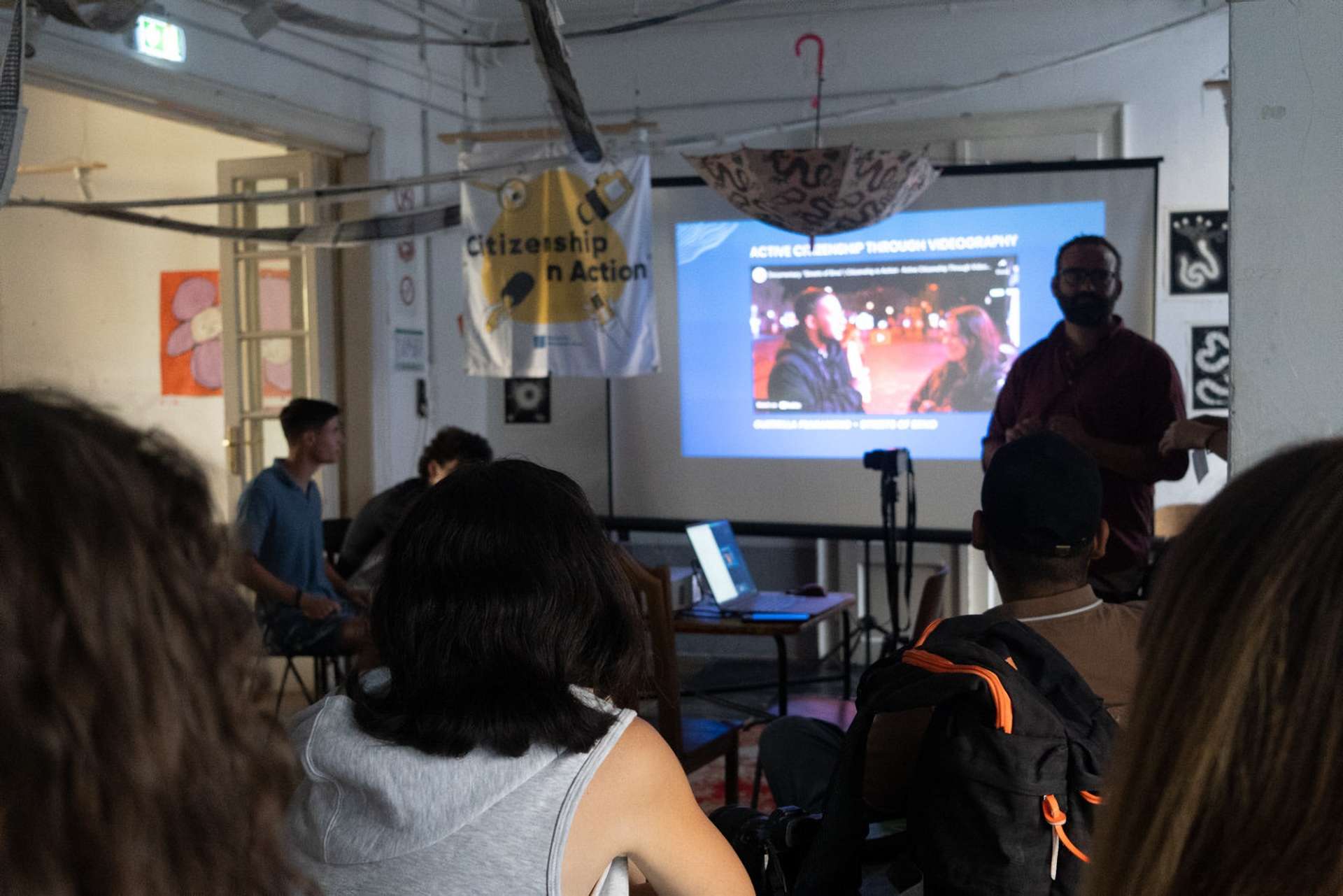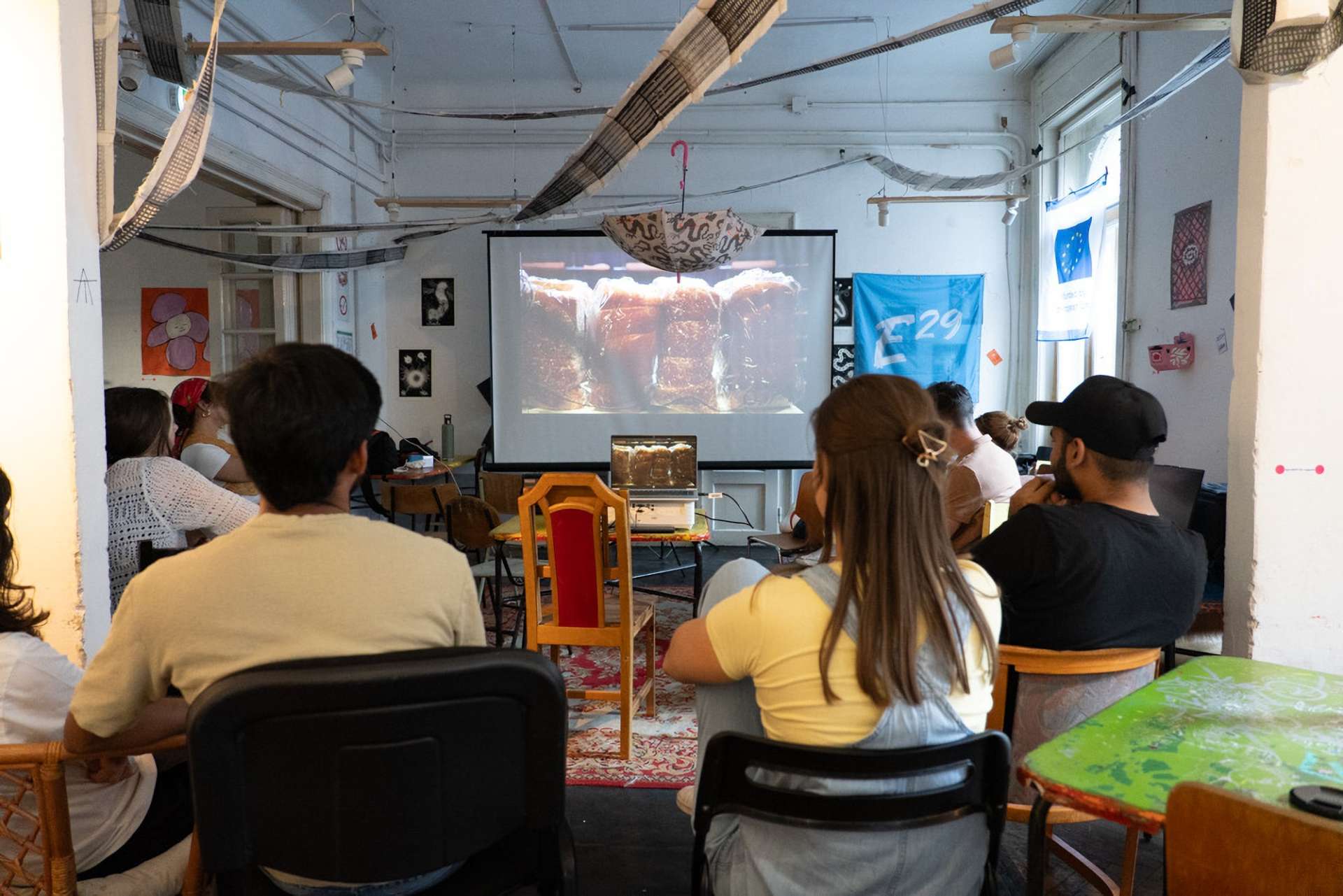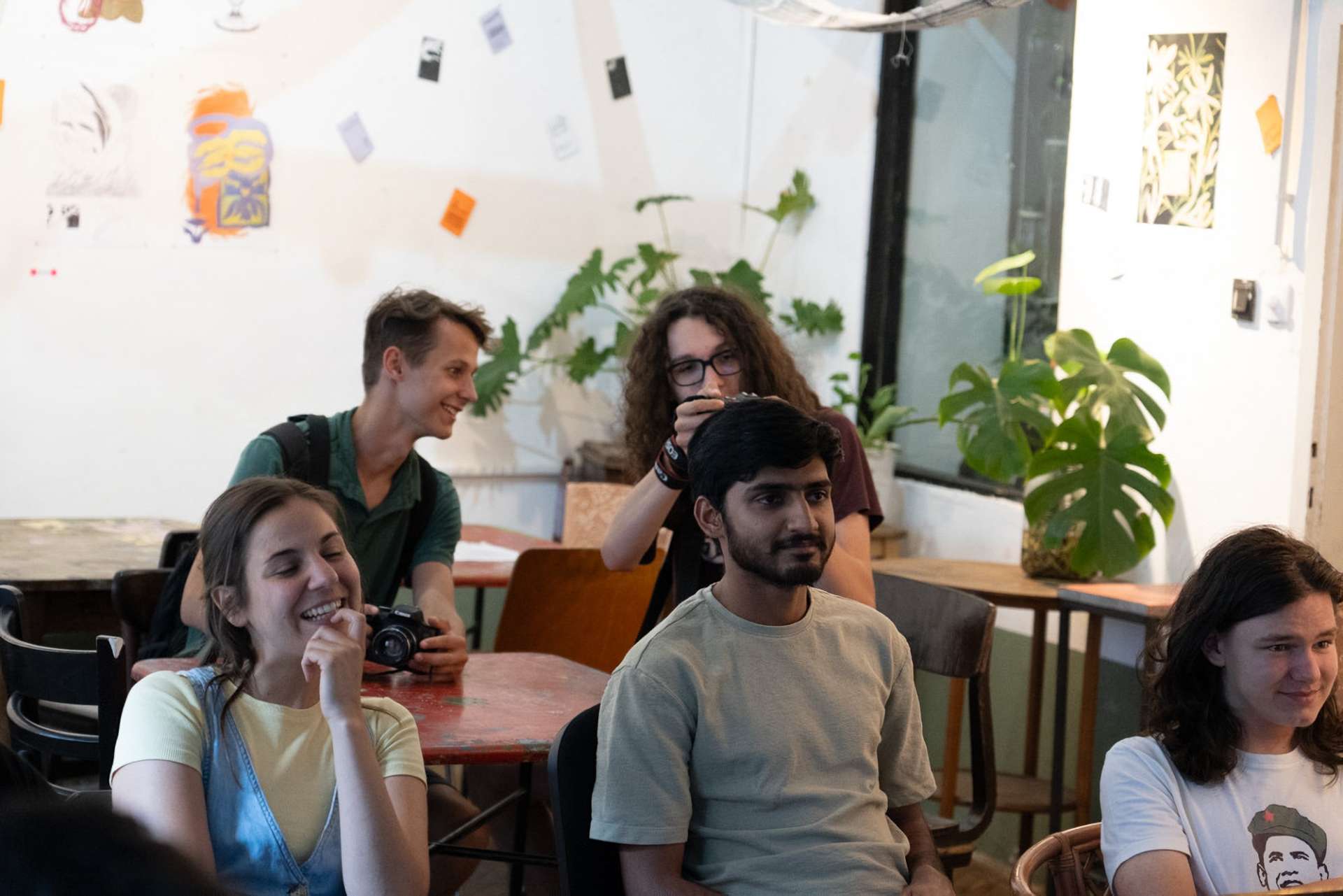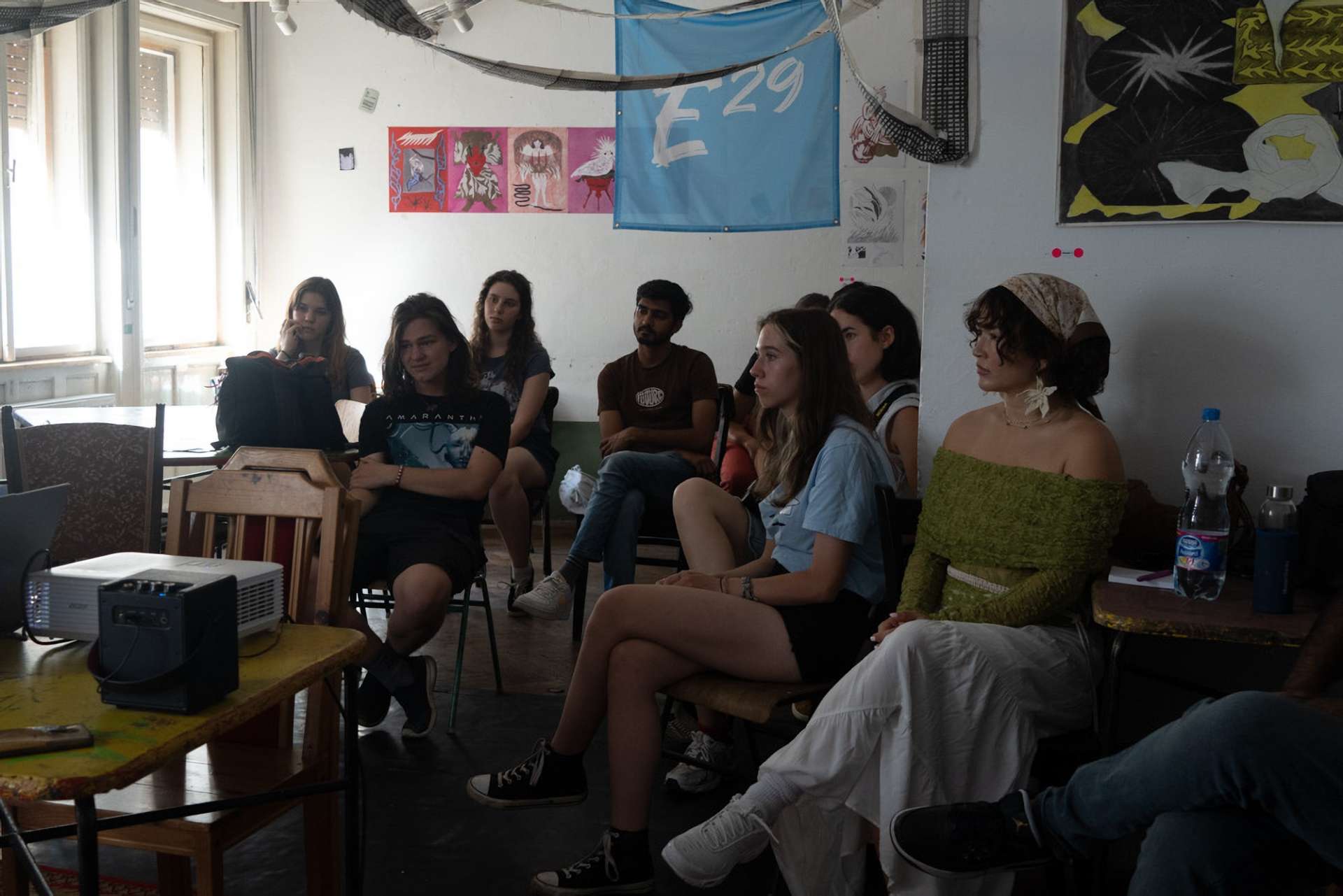Topic
Videography
Activity Dates
July 2024
Countries
🇭🇺
Location
Budapest
As part of the Citizenship in Action project, and our Active Citizenship Campaign in Hungary, the Video Workshop took place in Budapest in July 2024, bringing together local youth eager to explore the intersection of creativity and social change. The campaign kicked off with a hands-on training where participants learned the basics of video production — from storytelling techniques and camera settings to editing. The aim was simple yet ambitious: empower young people to reflect on their local realities and voice their ideas through short films.
Using the Guerrilla Filmmaking method, participants worked in small creative teams, exploring ways to connect with people in Budapest. The documentaries had to include chimney cake in it and the two groups took two different approaches. One set out to do a blind test with random strangers and determine the ultimate winner on the “Flavour Experiment”, the other focused on the experience of two foreign students, inviting them to try this traditional Hungarian treat for the first time in the “Chimney Cake Tales”. It was a fun and meaningful way to share local culture, while also fostering understanding and inclusion.
The campaign didn’t stop in Budapest. A group of participants also traveled to Lake Balaton, where they took their new skills to the field. In the small town of Balatonszemes, they documented a local running event — capturing not just the race, but also interviewing locals and athletes about the role of sport in community life and wellbeing. Their short documentary became a beautiful example of how local stories can connect with broader social topics.
The Active Citizenship Campaign proved that when young people are given the tools and space to express themselves, their creativity can inspire dialogue and action across generations.
Photo Gallery
A few more moments from this activity :)

Funded by the European Union. Views and opinions expressed are however those of the author(s) only and do not necessarily reflect those of the European Union or the European Education and Culture Executive Agency (EACEA). Neither the European Union nor EACEA can be held responsible for them.

